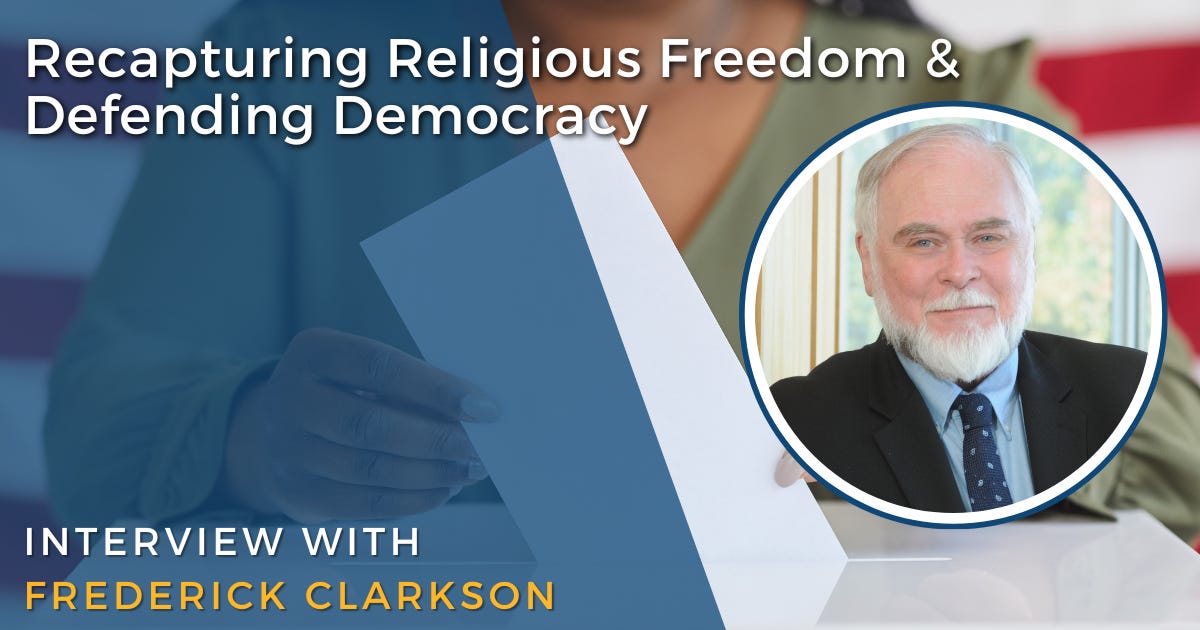Recapturing Religious Freedom & Defending Democracy: Interview with Frederick Clarkson
Freedom of Religion is one of the basic rights guaranteed by the United States Constitution. Ironically, the most serious current threat to religious freedom comes from those who claim to be most supportive of it. This threat is a highly organized assault on democracy as is evident in a formal agenda known as Project Blitz, established by a coalition of the conservative, Christian right in 2016.
Keep reading with a 7-day free trial
Subscribe to Cults, Culture & Coercion with Dr. Steve Hassan to keep reading this post and get 7 days of free access to the full post archives.



